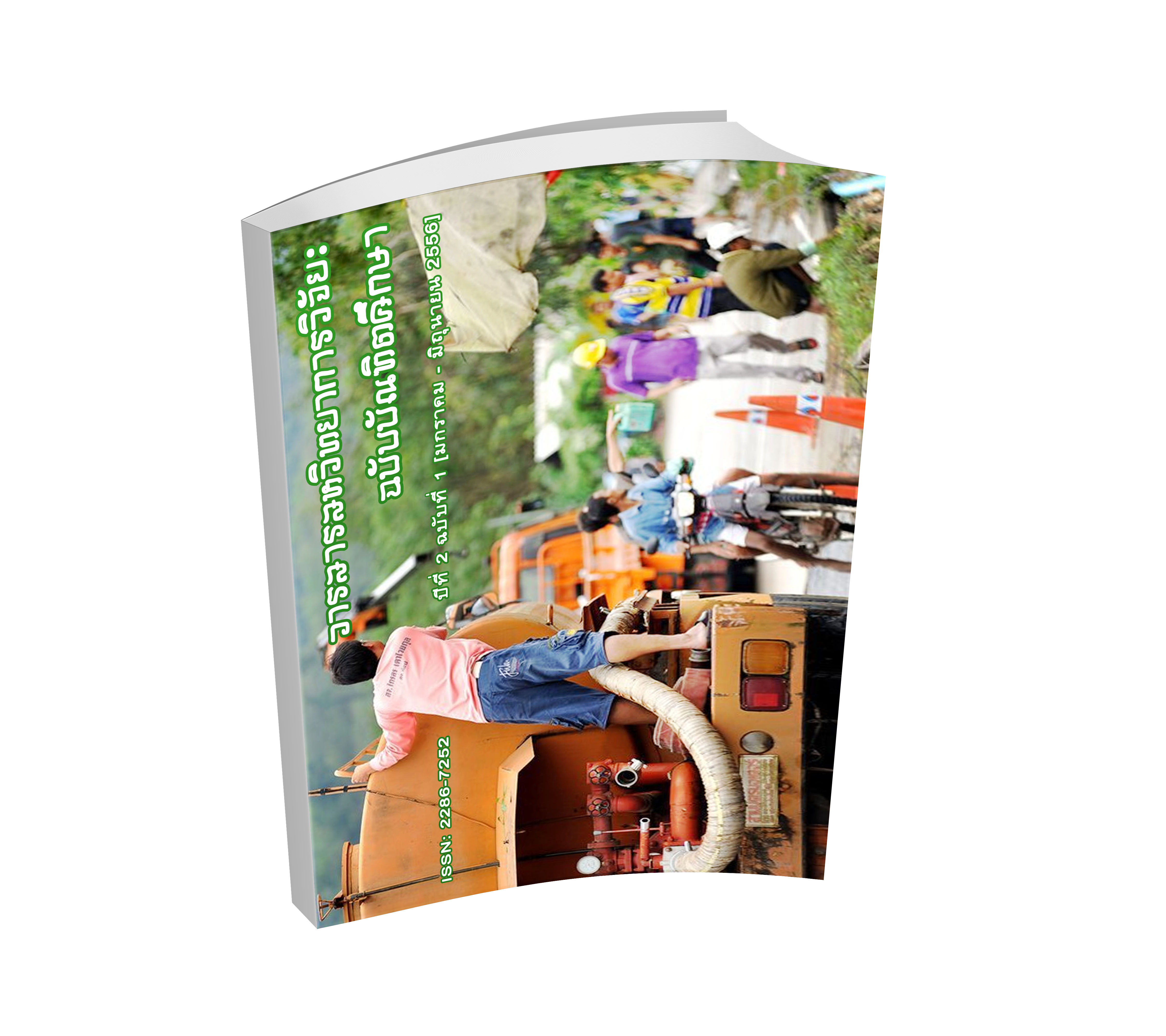การบริหารจัดการสภาวะน้าท่วมในต้าบลน้าหัก อ้าเภอคีรีรัฐนิคม จังหวัดสุราษฎร์ธานี
Keywords:
Flood Management, NamhakAbstract
The purpose of this research was to study the flood situations in Namhak, Khiriratnikhom, Suratthani and the Namhak community’s 4-step flood handling process, alarming, aiding residents, draining, and ameliorating/restoring. The research was a qualitative research study by using the focus group discussion technique with the sample of 8 entities, the community leaders, the local leaders and the wise people. Statistical classification was used and then synthesised as a descriptive summary. The research findings were summarised as follows: Alarming must start from both the senders and receivers in the communication. When an immediate flood occurred, alarming was prone to failure and thus people could not get a timely news. So, both Namhak Subdistrict Administrative Organisation and the community leaders must function together to alert people quickly throughout and thoroughly up-to-date. In risk analysis of each areas, some communities were still lack of knowledge, clear information and statistics to assess the severity of the flooding. As for aiding residents, it was found that the agencies that could help people coping with the flood were the district, the province, the Office of Disaster Prevention and Mitigation, and the Provincial Administration since these agencies were readily available and adequately capable to support the affected areas. The leading factor in the process of operation to consider was “survival bags”. Drainage in Namhak was lack of the proper management, mostly fixing only problems at hands. Ameliorating/Restoring was the process of reconstructing the areas and returning normal living conditions to people.
Downloads










.png)


